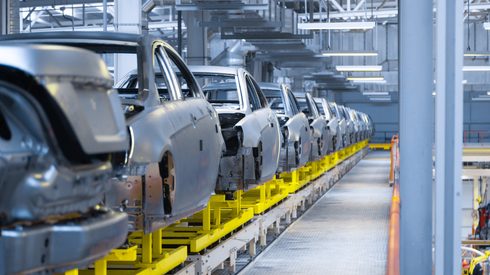Speaking to Fastmarkets in an interview on Thursday June 27, Alex Grant, who heads up magnesium startup Magrathea, argued that while US tariffs on Chinese magnesium were an undeniable boon for his company’s early production, they would not be necessary for its production to be competitive with China in the long-term.
“In the short term, [the tariff] is helpful for making sure we get into production and we succeed and get to commercial scale, but in the long term, we do not need the [support] of the duty,” Grant said.
The US introduced anti-dumping tariffs on Chinese magnesium imports in 1995. Local producers have repeatedly and successfully petitioned for their reintroduction. But the last producer – US Magnesium – declared force majeure in September 2021 and, according to the United States Geological Survey, was still experiencing production difficulties through 2023.
Between 2002 and 2022, the countries other than China that produced magnesium according to the British Geological survey were Brazil, Canada, France, India, Israel, Kazakhstan, the Republic of Korea, Malaysia, Norway, Oman, Russia, the Republic of Serbia, Serbia and Montenegro, the US, Ukraine and Turkey.
The Chinese magnesium smelting industry predominantly uses the Pidgeon process, and a significant proportion of production is based in the Fugu county of Shaanxi province, which offers close access to ferro-silicon and to cheap power from waste gas emissions from neighbouring semi-coke smelters, allowing them to produce material at competitive prices.
Tariffs could “potentially” still be needed in five to ten years, but in decades to come, Grant does not think they will be necessary, particularly if Magrathea succeeds.
Without US Magnesium – which hasn’t publicly announced a return to production or expected date of resumption – US consumers rely on imported primary material and secondary magnesium, where possible.
“The other US production is not pure, it is mostly recycling, so they can create a useable product [of around] 95.5% purity,” one US trader explained.
The trader also said that the primary producers’ advocacy for anti-dumping tariffs had frustrated some consumers.
This is a consideration for Magrathea as well, Grant said.
“We don’t want to build an antagonistic position against our customers – we’re taking a very different approach,” he explained.
Price competitiveness versus Chinese production has been cited as a significant obstacle for non-Chinese primary magnesium producers.
But US tariffs in tandem with the dearth of domestic production has helped push primary magnesium prices in the country to levels significantly higher than elsewhere.
Fastmarkets’ assessed price for magnesium, 99.9% min, ex-whs Baltimore was $5.50-6.25 per lb on June 27, flat from the previous session on June 13.
And the assessed price for magnesium 99.9% Mg min, fob China main ports was $2,540-2,550 per tonne ($1.15-1.16 per lb) on June 28, declining from the $2,550-2,580 per tonne recorded in the previous session on June 21.
Magrathea is a US-based startup that produces carbon-free magnesium metal without the mining process. Earlier this year, it was awarded $19.6 million by the US Department of Defense as part of the Defense Production Act Investments Program to increase domestic manufacturing of military-grade chemicals.
Grant founded Magrethea in 2022 with fellow Tesla alumnus Jacob Brown, and went on to build a pilot for a novel process of producing magnesium from seawater and brine through electrolysis. The startup is backed by Exor Ventures and Kunal Sinha of Glencore.
The company announced its first token metal sale in June, and Grant claimed that Magrathea has Letters of Intent and Memorandums of Understanding with a significant portion of the non-Chinese magnesium market globally.
Magrathea is focused on displacing carbon-intense Chinese magnesium in Western markets and scaling magnesium die casting to replace heavier structural metals such as steel and aluminium at competitive prices.
“There are fundamental physical chemistry reasons that mean magnesium can be made with a lower embodied CO2 and lower cost than aluminium,” Grant said.
Magrathea’s magnesium production, the company hopes, will also benefit from its minimal embodied CO2 emissions.
“We have completed a… life cycle assessment, which has shown we will potentially be able to make inherently carbon-neutral primary metal, which is pretty wild,” Grant said.
The company’s pilot plant in Oakland, California, has nearly completed commissioning, with the initial capacity to make two tonnes of metal per year. Grant said Magrathea will aim to produce hundreds of tonnes over two to four years, and eventually “tens of thousands of tonnes per year by the end of the decade.”
Discover over 1,500 prices for global metals markets. Build your personalized view of the metals markets in the Fastmarkets dashboard. Request a demo.






